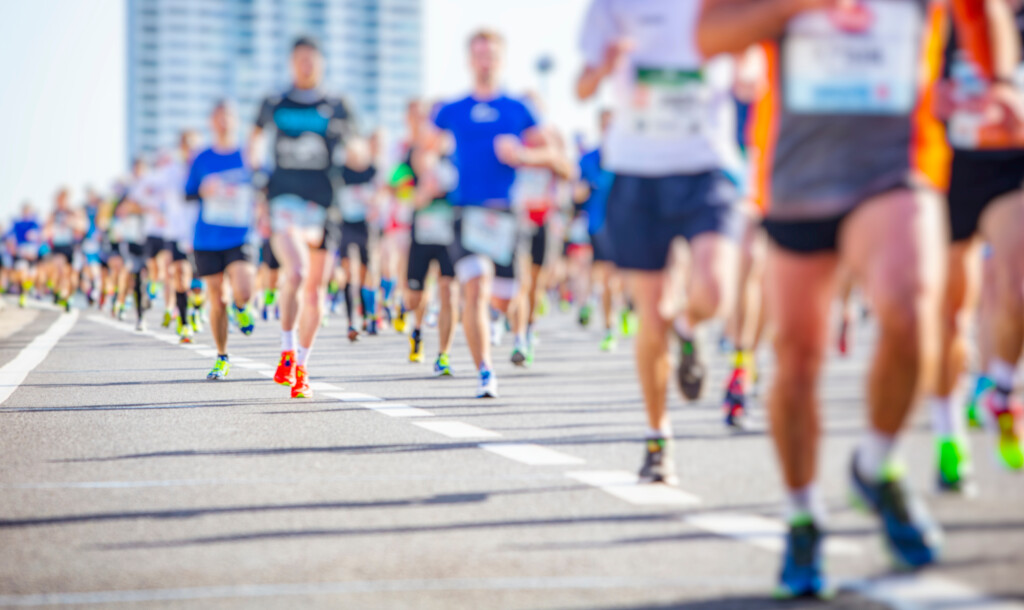Physical Activity & Recreation
Explore how physical activity and recreation creates active communities and promotes participation in sport. Our resources offer the latest insights and tools to harness the power of getting active.
Search Physical Activity & Recreation Resources
Top 10 resources
- SIRC Article: Schools play a key role in supporting youth physical activity
- SIRC Article: Promoting health through physical activity and inter-organizational partnerships: the Montreal case
- SCRI: Understanding where we stand today, so we can focus on a more active tomorrow
- SIRC Article: Why early childhood educators are key to developing children’s physical literacy
- SIRCuit Article: Anything is Possible: Using Ringette to Support Physical Literacy in the North
- 2024 Children & Youth Physical Activity Report Card
- What is physical literacy?
- Canadian 24-Hour Movement Guidelines for the Early Years
- A Common Vision for increasing physical activity and reducing sedentary living in Canada: Let’s Get Moving
- Mothers Moving Forward: A postpartum guide to being physically active

Featured resource
Jeff Crane

Featured resource
Talia Ritondo, Brock University

Featured resource
Benjamin Branget
Quick Facts
What are the recommended movement guidelines for adults in Canada?
For optimal health, adults aged 18 to 64 should integrate physical activity, minimize sedentary behaviour, and ensure sufficient sleep into their daily routine:
- Physical Activity: Aim for at least 150 minutes of moderate to vigorous aerobic activity per week, engage in muscle-strengthening activities twice a week, and include several hours of light physical activities like standing.
- Sedentary Behaviour: Limit sedentary time to 8 hours or less per day, with no more than 3 hours of recreational screen time, and break up long periods of sitting.
- Sleep: Get 7 to 9 hours of good-quality sleep with consistent bedtimes and wake-up times.
Similarly, for adults 65+:
- Engage in a variety of physical activities: Aim for at least 150 minutes of moderate to vigorous aerobic exercise per week, incorporate muscle-strengthening activities twice a week, and include balance-challenging exercises.
- Incorporate light activities: Include several hours of light physical activities, such as standing and breaking up long periods of sitting.
- Limit sedentary behaviour: Restrict sitting time to 8 hours or less per day and reduce recreational screen time to no more than 3 hours daily.
- Prioritize quality sleep: Get 7 to 8 hours of good-quality sleep regularly, with consistent bed and wake-up times.
What are the recommended movement guidelines for youth in Canada?
To support physical and mental health and development, youth should follow these key guidelines for physical activity:
- Daily Physical Activity: Youth aged 5 to 17 years should engage in at least 60 minutes of moderate to vigorous physical activity each day. This should include activities that strengthen muscles and bones, such as running, jumping, or sports, at least 3 times per week.
- Variety and Enjoyment: Physical activity should be enjoyable and varied. Youth are encouraged to participate in a range of activities that include aerobic exercises (for example, swimming, cycling), muscle-strengthening exercises (for example, climbing, resistance training), and bone-strengthening activities (for example, jumping rope, playing sports).
- Reduce Sedentary Time: Limit sedentary time, particularly recreational screen time, to no more than 2 hours per day. Encourage breaks from sitting and incorporate physical activity into daily routines.
- Promote Healthy Habits: Incorporate physical activity into everyday activities, such as walking or biking to school, playing outside, or engaging in organized sports. Encourage family activities that promote movement and active play.
- Safe and Supportive Environments: Ensure that youth have access to safe and supportive environments for physical activity. This includes providing appropriate facilities, equipment, and opportunities for participation, as well as fostering an environment that encourages active lifestyles.
How can physical activity benefit mental health?
Regular physical activity can significantly benefit mental health by reducing symptoms of depression and anxiety, enhancing mood, and boosting overall well-being. It also helps to reduce stress and improve sleep quality, which further contributes to mental health. Additionally, engaging in physical activity provides a sense of accomplishment and helps build self-esteem, while social interaction during group activities can strengthen support networks and reduce feelings of isolation.
To support physical and mental health and development, youth should follow these key guidelines for physical activity:
- Group Activities: Participate in group sports or recreational activities to strengthen social connections and combat feelings of isolation. Social interaction during these activities can provide emotional support and a sense of community.
- Setting Active Goals: Set and achieve physical activity goals to foster a sense of accomplishment and boost self-esteem. Breaking larger goals into smaller, manageable steps can help maintain motivation and reduce stress.
- Balancing Activities: Incorporate a mix of aerobic exercises, muscle-strengthening activities, and recreational pursuits to keep physical activity enjoyable and varied. This balance helps maintain mental engagement and overall health.
- Mindful Movement: Practice activities that combine physical exercise with mindfulness, such as yoga or tai chi. These can enhance focus, reduce stress, and improve mental clarity while providing physical benefits.
- Eating a Balanced Diet: Consume a nutritious diet rich in fruits, vegetables, whole grains, and lean proteins. Proper nutrition supports overall brain function and emotional stability.
- Asking for Help: Don’t hesitate to reach out to mental health professionals, such as therapists or counsellors, if you’re struggling. They can provide guidance, support, and treatment options tailored to your needs. Set Realistic Goals: Break down larger tasks into smaller, manageable goals. Achieving these goals can foster a sense of accomplishment and reduce feelings of overwhelm.
Why is regular physical activity important for adults?
Regular physical activity is crucial for maintaining overall health and well-being in adults. It helps manage weight, reduces the risk of chronic diseases like heart disease, diabetes, and certain cancers, and improves cardiovascular fitness. Physical activity also enhances muscle and bone strength, promotes mental health by reducing stress and anxiety, and improves sleep quality. Activities like brisk walking, cycling, swimming, and dancing are excellent for improving cardiovascular health by increasing heart rate and stamina. Staying active as an adult contributes to a longer, healthier life and helps maintain independence as we age.
What are the risks associated with sedentary behaviour?
Sedentary behaviour, such as prolonged sitting or inactivity, increases the risk of several health issues, including obesity, heart disease, type 2 diabetes, and certain cancers. It can also lead to poor circulation, weakened muscles, and joint stiffness. Additionally, excessive sedentary time is linked to mental health challenges, such as increased anxiety and depression. Reducing sedentary behaviour by incorporating more movement throughout the day is essential for maintaining overall health and reducing these risks.
Video Resources
Canadian Sport Concussion Workshop June 2018 NSO Panel
- SIRC
- 2018
Webinar: Managing & Preventing Concussions in Sport & Rec
- Canadian Parks and Recreation Association and SIRC
- 2020
SCRI: Aging Expectations in Physical Activity Behaviours (Part 2)
- York University and SIRC
- 2011
Mom’s Got Game
- SIRC
- 2021
Multiculturalism and physical culture: The case of the GTA
- University of Toronto, Sport Canada, Sport England, University of Ottawa, and SIRC
- 2016
SCRI Presentation: Understanding where we stand today, so we can focus on a more active tomorrow
- Canadian Fitness and Lifestyle Research Insititute
- 2021
Knowledge Nuggets
knowledge nuggets
Microbiota and athletic performance
Trillions of microorganisms, known as microbiota, live inside our digestive tract and regulate key aspects of health and disease. Recently, a connection between the gut
Trillions of microorganisms, known as microbiota, live inside our digestive tract and regulate key aspects of health and disease. Recently, a connection between the gut microbiota and physical activity has been discovered. Research now shows that these microorganisms may be leveraged to enhance athlete performance, in particular endurance.
knowledge nuggets
Adjusting coaching to suit athlete attachment styles
The relationship between coach and athlete can make or break an athlete’s experience. Recent research shows that understanding an athlete’s attachment style can help coaches
The relationship between coach and athlete can make or break an athlete’s experience. Recent research shows that understanding an athlete’s attachment style can help coaches tailor aspects of their communication and behaviour to best suit the athlete’s needs.
knowledge nuggets
Assessments in physical education
Physical education (PE) can play an important role in promoting activity and lifelong sport participation amongst youth. However, there is debate regarding how teachers should
Physical education (PE) can play an important role in promoting activity and lifelong sport participation amongst youth. However, there is debate regarding how teachers should best assess students in PE. This study explores students’ attitudes towards different areas related to assessment in PE, including curriculum, grading, teachers, and fitness testing.
knowledge nuggets
Fitness apps and activity trackers promote activity
Mobile apps and fitness trackers are a convenient way to monitor activity, set personalized activity goals and receive feedback on your activity levels. Fitness apps
Mobile apps and fitness trackers are a convenient way to monitor activity, set personalized activity goals and receive feedback on your activity levels. Fitness apps and activity trackers encourage better activity habits; for example, researchers found that those who use apps and trackers take approximately 1850 more steps per day, which is equal to just over one extra kilometre of walking a day.
knowledge nuggets
Physical literacy for engaging youth post-pandemic
Providing evidence-based sport and physical activity opportunities that intentionally support the development of physical literacy can help youth rebound from the negative impacts of the
Providing evidence-based sport and physical activity opportunities that intentionally support the development of physical literacy can help youth rebound from the negative impacts of the COVID-19 pandemic. Activities that are fun, challenging yet accomplishable, and that spark creativity in movement welcome youth back to the playing field and hold promise for keeping them engaged in the long-term.
knowledge nuggets
Motivation to move
Physical activity remains low and sedentary behaviours remain high despite increased awareness of the importance of sport and exercise for health. A recent study examined
Physical activity remains low and sedentary behaviours remain high despite increased awareness of the importance of sport and exercise for health. A recent study examined how motivation to engage in physical activity varies across the day. Researchers found that motivation to exercise fluctuates in a manner similar to a circadian rhythm.
knowledge nuggets
Current perspectives on multi-sport participation
Researchers correlate early specialization in sport with a higher likelihood of injury, burnout and dropout from sport. Multi-sport participation helps young athletes develop a spectrum
Researchers correlate early specialization in sport with a higher likelihood of injury, burnout and dropout from sport. Multi-sport participation helps young athletes develop a spectrum of skills that transfer to later specialization. The best advice regarding pre-puberty athletes is to help them experience a variety of sports and activities, including unstructured play, and allow them to gravitate to their sport of choice.
knowledge nuggets
An exploration approach to holistic development
Research suggests youth sport training focusing on exploration is central for holistic development. An explorative approach to youth sport and physical activity is one that
Research suggests youth sport training focusing on exploration is central for holistic development. An explorative approach to youth sport and physical activity is one that includes more opportunities for problem solving, autonomy and creativity, and engaging in different types of physical activities.
More Physical Activity & Recreation resources
|
|
|
|
|
|
|
|
|
|
